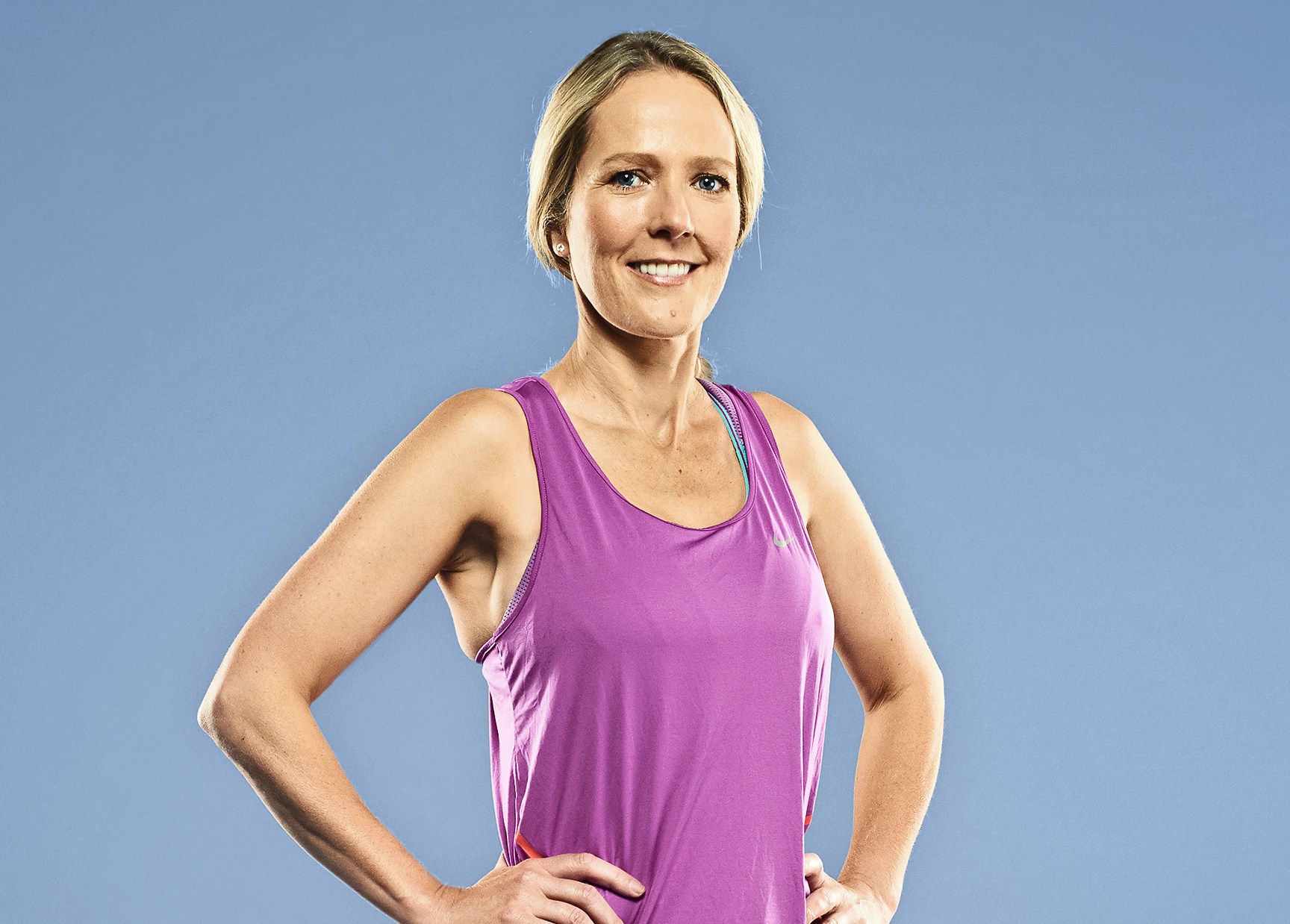Have you recently entered a marathon or triathlon? Training for and completing endurance events gets a big tick for many physical and mental health benefits but you should be aware that it can also bring about previously unspoken side-effects that affect your mood and relationships. Counsellors say that “divorce by marathon or triathlon” is a real phenomenon and a study from Trinity College Dublin reveals that, far from being on a permanent runner’s high, some serial midlife marathoners are more prone to anxiety and depression than the general population, putting their work, social and family lives at risk.
We are in the midst of an endurance boom. There were nearly 870,000 UK applications for the 2026 TCS London Marathon and, according to the British Triathlon organisation, more than 200,000 people a year cross off a triathlon from their bucket list. For many, once is not enough when it comes to these events.
Leo Lundy, a researcher at the Trinity Centre for Biomedical Engineering, says that with about 6,000 aspiring members of the 100 Marathon Club, which exists to celebrate the achievements of having run the official distance more than 100 times, “the UK has one of the highest numbers of multi-marathoners per head of population in the world”. This explosive growth in endurance sports comes largely from midlife converts. “There is a real wave of interest in running at the moment and most people who finish multiple marathons are middle-aged,” Lundy says. “Many probably didn’t start running until they were 40 but some go on to do several more events and try ultramarathons too.”
A runner himself, Lundy, 61, wanted to find out whether repeated recreational marathon running was as good as it is reputed to be for mental wellbeing. He and his colleagues in the Trinity school of medicine surveyed 576 male and female marathon runners in their forties and fifties from 22 countries, including the UK and Ireland. All fitted the description of “multi-marathoners”, those who embrace the growing trend for aiming to complete the 26.2-mile distance on numerous occasions.
“Initially 94 per cent of the runners said they thought it was good for them,” Lundy says. “But when I went back and conducted robust and validated psychological tests for depression and anxiety, I found that in 25 per cent of cases the results for these conditions were worryingly high.”
Findings from his study, published in the Acta Psychologica journal, also showed that within this group about 8 per cent of runners fell into a high-risk category for clinical depression and severe anxiety, well above clinical cut-off levels and much higher than World Health Organisation norms.
• The 11 health benefits (and downsides) of running
“The study highlights that marathon running is not a guarantee of good mental health,” Lundy says. He stresses that running and endurance exercise are normally linked with better mood and that 75 per cent of people in his study felt better for doing it. “It is when the body and mind are under constant strain, and for some runners the habit becomes more of a coping mechanism than a joy, that burnout and anxiety can creep in,” he says.
Even those who never intend to do more than one marathon should heed the findings with caution. “You have the months of training, the weeks leading up to it, the adrenaline on the day, the energy required to complete the race and the euphoria of crossing the line,” Lundy says. “Because of this there will usually be a period of downtime afterwards.”
Ammanda Major, a sex and relationship counsellor who is clinical director for the charity Relate at Family Action, says it is not just the mood swings but the time demands associated with endurance events that have become an increasingly common denominator when relationships hit the rocks. “Focused, time-consuming physical activities such as marathons, triathlons and golf create neurobiological feedback loops in that they make you feel good, so you do more of them,” she says. “But if you start spending inordinate amounts of time away from your relationship due to an activity then partners might feel it is a choice you have made and start to feel alienated and neglected.”
A study in Sociology of Sport suggested that newcomers to marathon running often “undergo a process of identity transformation” as they become immersed in the activity and enter a new “running social world” that operates in a zone outside their partnership or marriage.
“Even if the non-running partner is supportive, embracing a serious marathon identity by the running partner can jeopardise the marriage [or partnership],” said researchers from the Academic College at Wingate in Israel, adding that sometimes “the partnership may crumble” as a result. I have completed seven marathons (plus one on roller skates) and during the standard 16-week training period for each I would find myself slowly becoming consumed by the process at the expense of everything — and everyone — else.
• I became a marathon runner in my 50s — here are the 7 things I learnt
Be under no illusion, the training occupies your every waking thought and action, from how you sleep to what and when you eat. Conversations revolve around references to carbs, fluids and electrolytes, mileage, pacing and predicted times. Mealtimes at home will be shifted forwards or backwards to comply with your “refuelling window”. Alcohol is mostly off the menu because it will leave you dehydrated for your next run. You are constantly checking your Garmin watch or Strava and you dare not go out too late for fear of nodding off. Forget sex because not only are you permanently knackered, you are often in bed by 8.30pm so you will wake up ready for your morning run.
Preparing for these events absorbs every ounce of your being and it doesn’t end when you cross the finish line. There is a mourning period when days are suddenly devoid of meaningful miles and the lack of a looming goal can cause a dramatic slump in mood. It can last months. I recall feeling bereft without a weekly training schedule and the camaraderie of fellow runners after some marathons. It would often take me several weeks for my mojo to return.
What psychologists have dubbed the runner’s blues is not unusual. Last year researchers from Linnaeus University in Sweden interviewed 16 recreational runners or triathletes about their emotional state within six months of participating in an endurance event. Some respondents said they still felt “high on life” weeks or months after the event but one of the most common themes was to be experiencing a “loss of energy, ambivalence and melancholy”.
Sofia Ryman Augustsson, an associate professor of sports science and the lead author of the paper published in the Sports Medicine, Science and Rehabilitation journal, said that negative post-race emotions were “physically and mentally challenging”. She said participants blamed their “post-race blues” on factors such as “time spent training for a specific race” and a “perceived inability to set new goals for an upcoming training period”.
Lundy says runners should have a greater awareness of overtraining, exercise dependence and when lifestyle pressures become too much. “Making time for recovery, keeping running enjoyable rather than compulsive and talking openly about mental health in running clubs or groups could go a long way,” he says. Setting time aside for relationships and focusing your emotions on events outside daily runs and workouts is also important. “There has to be a balance,” Major says. “It should not take over your life to the extent that everything else is adversely impacted.”
My last marathon was in 2011, after which I vowed not to do another until I had more time on my hands and the kids had grown up. Now that they have, there is a nagging desire to try one more within the next few years, maybe to sign off my fifth decade. Although if my non-running partner is reading this, he may have other ideas.
• I’ve run 20 marathons — this is the one that made me cry
How to save your relationship
Peta Bee has advice for how to stop your passion for running ruining your relationship
AMIT LENNON FOR THE TIMES
Re-engage with your partner
It is important not to come back after a training run and give your partner chapter and verse about how it went. “Even if you are knackered, make sure you create a space for re-entry into your relationship after you’ve been out doing your thing,” Major says. “Ask about their day, how the kids are, if the mother-in-law made her hospital appointment and things that are important to you both.”
Involve your partner to some extent
“When partners feel alienated they find it hard to show interest in whether your training or event went well,” Major says. “You need to find a balance in which you can discuss some elements of your sporty hobby but not let it overwhelm the conversations between you.” Equally, she says, if you don’t run marathons but your partner does, you will need to accept that it is important to them and try to make some space in your relationship for that commitment.
Be prepared to compromise
Discuss your training and competition plans with your partner. “I’ve worked with couples where the non-sporty partner finds out that their husband or wife has signed up to an endurance event in three weeks’ time when there is some family commitment,” Major says. “The sporty partner keeps it quiet because they know it is going to cause ructions and the other partner feels as if the rug has been pulled from under their feet and it is all a thousand times worse than it would have been if they had planned ahead together for events that are important to both of them.”
Ask yourself why you are becoming obsessed with training
In some cases throwing yourself into endurance training can be a symptom that something else in the relationship is wrong. “Sometimes partners who are unhappy in a relationship will seek external validation from a hobby,” Major says. “If you suddenly find yourself getting drawn into hobbies that take you away from the home a lot more, stand back and ask yourself if it is because you are genuinely enjoying the challenge or because you are trying to escape a difficult situation.” If it’s the latter, she says, it’s time to see a relationship therapist.

